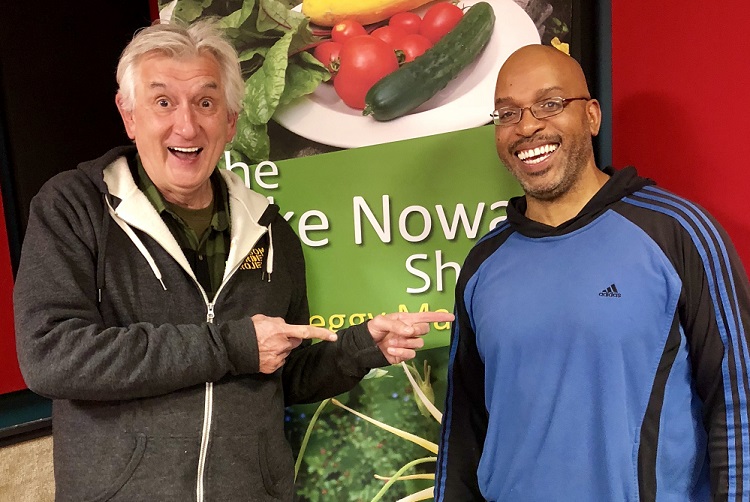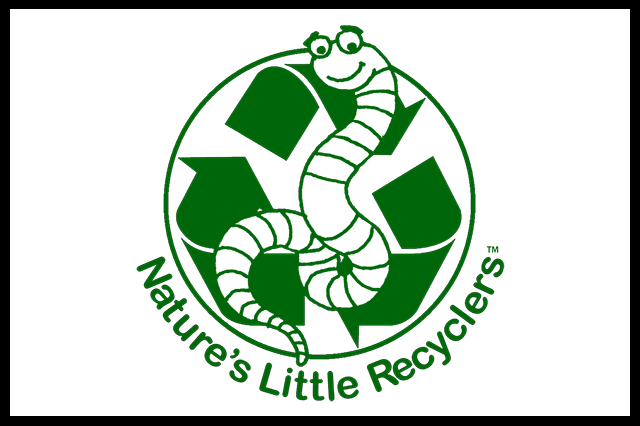Opening a Can of Vermicompost
Podcast: Play in new window | Download (Duration: 1:43:54 — 48.3MB)
Subscribe: Apple Podcasts | Spotify | Android | iHeartRadio | Podchaser | Email | TuneIn | RSS | More
Nature’s Little Recyclers battles for survival
(March 3, 2019) What could be more benign than vermicompost? For those of you new to the concept, Vermicompost, or worm composting,
is the product of the composting process using various species of worms, usually red wigglers, white worms, and other earthworms, to create a mixture of decomposing vegetable or food waste, bedding materials, and vermicast.
According to Cornell University,
Worms eat food scraps, which become compost as they pass through the worm’s body. Compost exits the worm through its’ tail end. This compost can then be used to grow plants. To understand why vermicompost is good for plants, remember that the worms are eating nutrient-rich fruit and vegetable scraps, and turning them into nutrient-rich compost.
Though this decomposition process reveals the marvelous recycling system of nature, as I said, it’s not particularly scary.
So why did the City of Chicago send out a cease and desist order last year and, without warning, bulldoze a city lot full of vermicompost windrows? The lot was one of three properties that were purchased by a company called Nature’s Little Recyclers. Their stated mission:
- Reduce the amount of material going into landfills, thus reducing global warming and providing a more sustainable and green solution to Chicago.
- Create local jobs, thus restoring a living wage and more opportunities to residents of local communities.
- Produce cleaner soil, thus developing urban farms and eliminating local food deserts.
The history of NLR pretty much parallels the urban agriculture movement in Chicago. Ed Hubbard starting making vermicompost and harvesting worms in 2012. His son Dale soon joined the company. As the business outgrew its modest beginnings, it moved from location to location, operating on land owned by others. The business model certainly seemed to be providing a needed service.
Their collection clients work with individual homeowners and with restaurants and hotels. Ed and Dale also work with Chicago Event Management, the group that operates the Chicago Marathon and the Shamrock Shuffle. Last year, 10 tons of banana peels and cups from the race were turned into one ton of nutrient rich soil.
In 2018, they took the plunge and purchased three plots in Chicago. The goal was to use their vermicompost product to rehabilitate the soil on those parcels, then turn the land over to worthy tenants. They say they can accomplish this in two years per plot.
But sometimes in Chicago, no good deed goes unpunished. Forbes picks up the story.
While they hoped that they would use this land for a time and then eventually donate it for community gardening or urban agriculture, owning property put them on the city’s regulatory radar. Two of the three properties received citations and then cease-and-desist orders. Ed and Dale intended to clean the sites as ordered, but the city immediately sent out bulldozers to one property. At the second property they were allowed to remove the worms and leave behind enough healthy soil for gardening purposes.
By the way, Ed says that he lost more than $15,000 in supplies when the City decided not to give them even a couple of days to get their equipment and windrows removed from the site. before they bulldozed it. Now they are waiting on a pending court case regarding their remaining lot.
Their situation seems particularly baffling, considering that, in 2015, the City of Chicago passed amendments to update Chicago’s compost ordinance. According to Advocates for Urban Agriculture, community gardens and urban farms can now accept and compost food scraps and other organic waste generated off-site. But Nature’s Little Recyclers falls outside of those guidelines.
NLR is working closely with the Institute for Justice Clinic on Entrepreneurship at the University of Chicago Law School to resolve the problem. Beth Kregor of the IJ Clinic wrote to me recently and explained that
A composting business that is trying to turn waste from hotels and restaurants into fertile soil instead of landfill has to have a Level III Recycling Facility permit under the law. And the only land that is zoned for that is manufacturing zones. Land there is very often expensive and/or contaminated from previous manufacturing. Nature’s Little Recyclers thought that its plan to compost for a short while on a residential lot that could legally become a community garden was a great way to help the city meet its sustainability goals and support gardens, as well as a feasible way to serve their customers who wanted to compost…
The way the city’s laws are set up, farms and composters are too often in a grey zone and have to operate with their fingers crossed that no official will enforce laws against them, because the laws don’t exist for them to operate fully legally. We of course want to advocate for reforms that make Chicago a green zone instead of a grey zone.
Ed Hubbard says that, by his count, he was prepared to create 50 jobs in 2019 alone. But his business is too big to do it on city lots but too small to afford a manufacturing site. So what’s the next step? The IJ Clinic thinks it’s time to revisit Chicago’s composting ordinance…again. To that end, you can sign this Change.org petition,
Keep Chicago Green: Tell the City to Make Space for Composters
On this morning’s show, we welcome Ed and Dale Hubbard of Nature’s Little Recyclers, and Beth Kregor, the director of the IJ Clinic on Entrepreneurship.
Flowertales: The Story Grows On
If it’s March in Chicago, it’s time for a snow storm. Well, that and the annual Chicago Flower & Garden Show. This year’s theme is “Flowertales: The Story Grows On.” Once again, the gardens will interpret the unique role that flowers, plants and gardens play in the stories of our lives and literature. And, once again, the show it partnering with Bernie’s Book Bank, the leading provider of quality children’s books in the Chicago area. They deliver quality books to at-risk youth from birth through sixth grade.
The show runs from Wednesday March 20th through Sunday, March 24th at Navy Pier. As usual, there are
Feature Gardens
Seminars
Gardening Live presentations
Garden Gourmet
the Home and Garden Marketplace
Kids Activities
Charity Event “Evening In Bloom”
 And I would be remiss if I didn’t mention the Potting Parties, hosted by none other than a regular on our show, William Moss the Garden Boss! Not only is he the Garden Boss, he is also the Official Potting Parties Instructor. At the potting parties, you create your own mixed container of plants under the watchful eye of The Garden Boss.
And I would be remiss if I didn’t mention the Potting Parties, hosted by none other than a regular on our show, William Moss the Garden Boss! Not only is he the Garden Boss, he is also the Official Potting Parties Instructor. At the potting parties, you create your own mixed container of plants under the watchful eye of The Garden Boss.
Oh, did I mention that The Mike Nowak Show with Peggy Malecki will once again be broadcasting from the Flower Show? We’ll be there on Sunday, March 24 at our usual time of 9-11am. The doors don’t open until 10:00, but we’ll certainly have plenty of folks to talk to in the first hour.
William Moss joins us on today’s show to preview his appearance at the event. And we could possibly do a preview without Mr. Flower Show hisself, Tony Abruscato. They join us in studio this morning.
Addendum: Just before this morning’s show, William Moss sent us the pdf of the 2019 Mossees. As far as I know, he hasn’t posted this on his own website yet. So we’re scooping the guy who created these awards! Go figure. He describes them as
a list of some of the best garden performances from last season. These plants were selected for their productivity, resistance, resilience, hardiness, and beauty in rough situations, like community plots, small yards, parkways, dry slopes, wet spaces, woodland gardens, and rooftop containers.
Enjoy!


